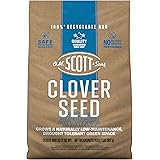Best Choice Products 8x2ft Outdoor Wooden Raised Garden Bed Planter for Vegetables, Grass, Lawn, Yard - Natural
27% OffLEETOLLA Elevate 32" Tall Raised Garden Bed Outdoor with Wheels & Shelf for Mobility, 400LBS Capacity, Anti-Rust Steel Planter Box for Vegetables/Herbs, Patio-Balcony-Backyard
25% OffComposting is a natural process that involves the decomposition of organic matter into nutrient-rich soil. It’s an eco-friendly way to dispose of food waste and yard trimmings while also creating a valuable resource for your garden. In this blog post, we will explore the benefits of composting for both your garden and the environment.
What Is Composting and How Does it Work?
Composting is the process of breaking down organic material such as leaves, grass clippings, vegetable scraps, and fruit peels into smaller pieces until they decompose into a dark, earthy substance known as humus. This process is facilitated by microorganisms such as bacteria, fungi, and worms that break down the organic matter and turn it into nutritious soil.
The Benefits of Composting for Your Garden
1. Improves Soil Health: Compost adds essential nutrients like nitrogen, potassium, and phosphorus to the soil, which helps plants grow healthier and stronger.
2. Enhances Plant Growth: The nutrients in compost help plants absorb water and nutrients more efficiently, resulting in faster growth and better yields.
3. Reduces Water Usage: Compost helps retain moisture in the soil, reducing the need for irrigation and helping plants survive during dry spells.
4. Controls Pests and Diseases: Compost contains beneficial microbes that can protect plants from pests and diseases.
Why Composting is Good for the Environment
1. Reduces Waste: By composting food waste and yard trimmings, you reduce the amount of garbage that ends up in landfills, where it produces methane gas, a potent greenhouse gas.
2. Promotes Sustainability: Composting is a sustainable practice that reduces our reliance on synthetic fertilizers and pesticides, which can harm the environment.
3. Protects Wildlife: Composting encourages the growth of insects and other wildlife that are essential for maintaining a balanced ecosystem.
Getting Started with Composting at Home
To get started with composting at home, follow these steps:
1. Choose a location: Select a spot in your backyard or garden where you can easily access the compost bin.
2. Build or buy a compost bin: You can build a simple compost bin using wooden pallets or purchase one online.
3. Collect materials: Begin collecting organic matter such as food waste, yard trimmings, and shredded paper.
4. Mix and layer: Layer your organic matter in the bin, mixing in brown (carbon) materials such as dried leaves and green (nitrogen) materials such as fresh grass clippings.
5. Turn regularly: Use a pitchfork or shovel to turn the compost pile every few days, ensuring that all the materials receive enough oxygen to decompose properly.
Tips for Successful Composting
Here are some tips for successful composting:
1. Keep it moist but not too wet: Too much water can slow down the decomposition process, so make sure to keep the compost pile slightly moist.
2. Add carbon and nitrogen sources: A good balance of carbon and nitrogen sources will ensure that your compost decomposes quickly and effectively.
3. Turn frequently: Regular turning helps aerate the compost pile and speed up the decomposition process.
4. Use a variety of materials: Adding a mix of different types of organic matter will provide a wider range of nutrients for your plants.
Frequently Asked Questions About Composting
Here are answers to some common questions about composting:
Q: What kind of materials should I add to my compost pile?
A: You can add a wide variety of organic matter to your compost pile, including food waste, yard trimmings, shredded paper, coffee grounds, eggshells, and even pet fur. Just remember to balance out the greens (high in nitrogen) and browns (high in carbon).
Q: How long does it take for compost to form?
A: The time it takes for compost to form depends on several factors, including the size of your pile, the type of materials used, and the temperature. On average, it can take anywhere from three months to two years for compost to fully form. However, if you turn your pile regularly and maintain a good balance of materials, you can expect to see finished compost within six months.
Q: Can I use compost instead of fertilizer?
A: Yes! Compost is a great alternative to chemical fertilizers because it provides a steady supply of nutrients over time. Plus, it improves soil structure and promotes healthy root development.
Related Content
- Chargeable garden waste collection service begins in North Somerset
- Fall on Earth — Meet Sustainability Champions – Ohio News Time
- Planting Your Vegetable Garden
- memo – Organic Gardening Woes? Try These Great Ideas!
- Waterless Urinal Market Business Revenue, Future Growth, Trends Plans, Top Key Players …













































